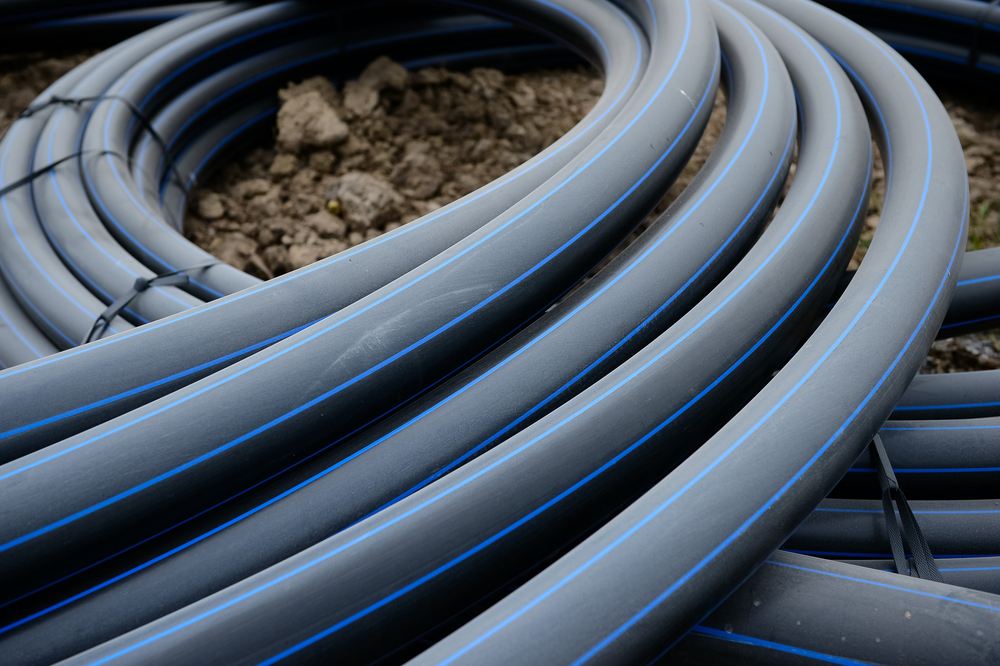Introduction:
HDPE pipe manufacturers in Rajkot are a great choice, considering their strength and cost- effectiveness compared to conventional pipeline materials like PVC, steel, and concrete. HDPE pipes have many properties that make them cost-saving and more efficient in various applications, and this blog is about some of them.
Durability of HDPE Pipes
Durability, in particular, is one of the most important selection criteria when considering piping materials, particularly for long-term infrastructure projects. In this regard, HDPE pipes possess a number of main characteristics, which are
1. Chemical Resistance
Another property that makes the cost-effectiveness of HDPE pipes popular to use is their impressive chemical resistance, as HDPE pipes demonstrate high resistance to electrolytes and both organic and inorganic solvents.
HDPE pipes do not rust or rust away like metal pipes when subjected to harsh environments over time, retaining their structural integrity. The HDPE pipe is very good for sewage, industrial waste disposal, and chemical transport.
2. Flexibility and Impact Resistance

HDPE pipes, for instance, are extremely elastic and are not as rigid as PVC and concrete pipes. This flexibility enables them to absorb shocks and resist breakage under heavy loads or external pressures like the movement of the ground, earthquakes, or traffic loads.
Moreover, HDPE pipe can be laid in sloped and uneven terrains without fear of pressuring up and cracking.
3. Resistance to Abrasion and Wear
In applications where pipes carry abrasive solids like sand, slurry, or wastewater, the internal surface of the pipe must endure ongoing wear. HDPE pipes are highly resistant to abrasion, which extends their service life in comparison with steel or concrete pipes that may wear out faster in similar conditions.
4. Leak-Free Joints
Heat fusion welding is the most common way to connect electrofusion coupler, making the bonds flawless and waterproof.
Traditional pipeline materials, like steel or PVC, generally use mechanical joints or bonds, which can break down and come dense over time. Friction-welded joints of HDPE pipes removed this risk, ensuring a long-term, secure pipeline system.
5. Longevity
Under typical working circumstances, HDPE pipe manufacturers in Rajkot have a lifetime of more than 50 years, making them one of the most stable choices in the market. Due to their ability to resist environmental factors as well as chemical exposure and mechanical stress, they are a reliable solution for underground and above-ground solutions.
Cost-Effectiveness of HDPE Pipes
This versatility makes HDPE pipes extremely suitable for both temporary and permanent applications. There are many factors influencing the cost-effectiveness of the HDPE pipes:

1. Lower Material and Production Costs
However, HDPE pipes are cheaper to produce than traditional materials such as steel and ductile iron. The raw material, high-density polyethylene, is widely available, and the production process is relatively simple, keeping overall costs down.
2. Low Maintenance Requirements
HDPE pipe manufacturers in Rajkot have much lower long-term maintenance costs compared to metal or concrete pipes. HDPE is also inherently resistant to corrosion, scaling, and biological growth, which minimizes the need for any periodic repair or replacement.
These leak-free fusion joints prevent waste of the valuable drinking water and lead to a drop in maintenance-related costs.
3. Energy Efficiency
The inside surface of HDPE pipes is relatively smooth, meaning they have low friction, which enhances the efficiency of the fluid flow. This trait reduces pumping costs because moving liquids through the pipelines requires less energy. Conversely, when contacting rougher materials like concrete or metal, resistance causes energy consumption and operational expenses to go up.
Read More: The Role of Electrofusion Fittings in High-Pressure Pipeline Systems
4. Sustainable Environmental and Economic Benefits
One more reason for their cost-effectiveness of HDPE pipes is the environmental impact. HDPE is recyclable, so old or defective pipes can be repurposed rather than sent to landfills.
Since HDPE is lightweight, it uses less fuel when being transported, contributing to lower carbon emissions and, ultimately, lower costs on the project.
Applications of HDPE Pipes
HDPE pipes are used in many industries because of their hardness and low cost:
- Water Supply and Distribution
HDPE pipes are commonly used for drinking water pipelines because they are non-toxic and cannot be influenced by germs. They are suitable for urban and rural water supply networks because of their flexibility and leak-proof joints.
- Sewage and Drainage Systems
HDPE pipes also possess corrosion-resistant properties, which is one of the highlights of the various advantages of HDPE pipes over the nylon garden hose in wastewater management, stormwater drainage, and sewage systems. They can withstand high-pressure flows and harsh chemical exposure without damage.
- Industrial and Mining Applications
Some industries, including agriculture, chemical processing, and mining, utilize this means of transportation for aggressive fluids and chemicals. They possess superior abrasion resistance and durable performance with long life in harsh industrial conditions.
- Irrigation and Agriculture
For agricultural purposes, HDPE pipes are commonly used in irrigation systems owing to their durability to ultraviolet radiation and other environmental factors. With farming operations, it is a cost-effective and reliable solution to smoke water.
Conclusion
The unique properties of cost-effectiveness of HDPE pipes are their resistance to chemical, corrosion, and mechanical stresses, which contribute to long-term performance with low installation and maintenance costs, making them economical materials for several structural projects. Also Read About Exploring the Benefits of High-Density HDPE Pipes in Construction